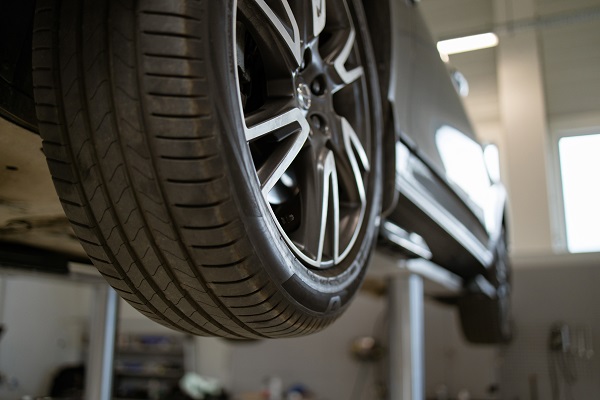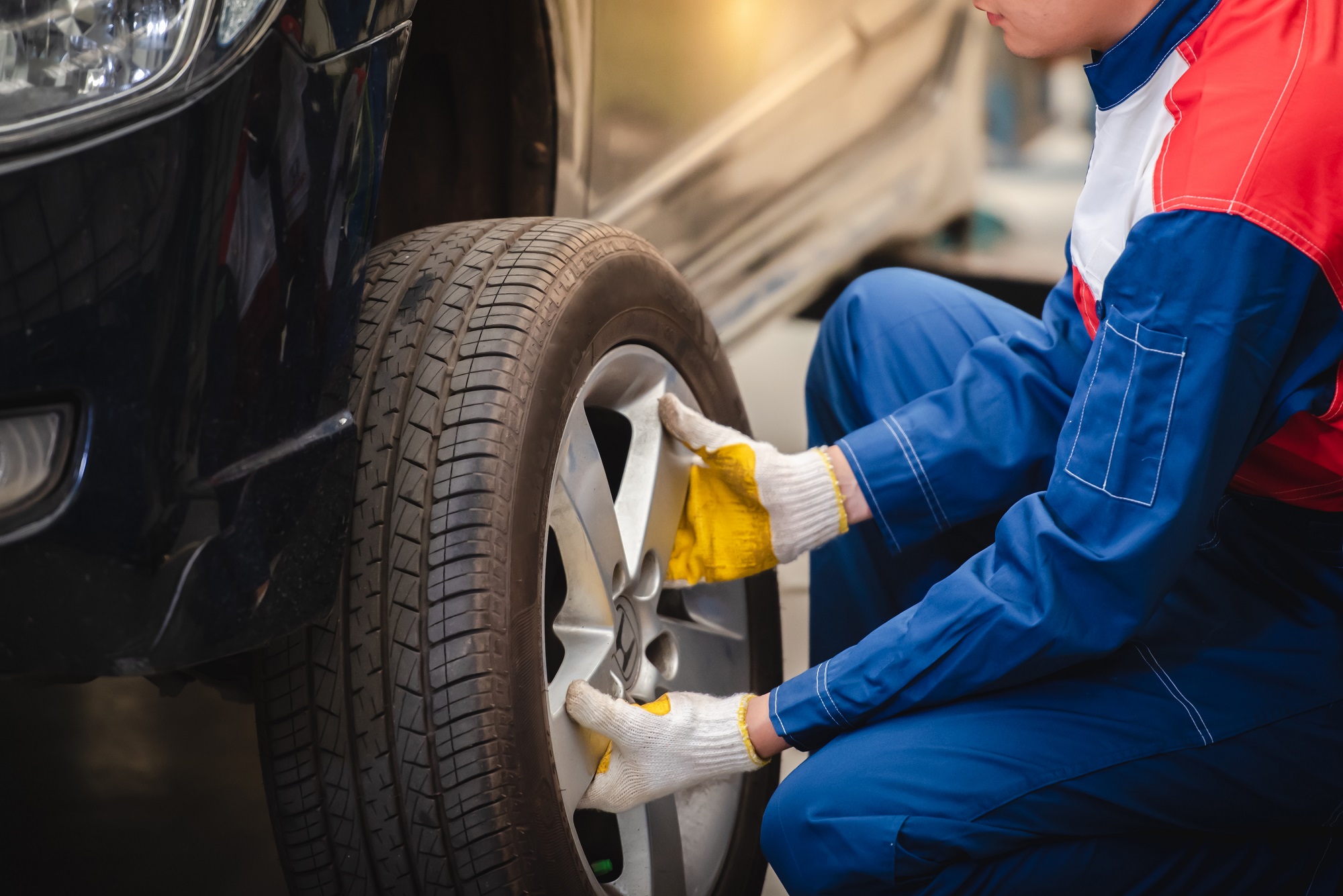Understanding the Basics: A Step-by-Step Guide to Your Initial Alignment Shop Experience
At your first alignment shop visit, expect a detailed vehicle inspection, identifying alignment issues and their root causes. Technicians assess tire wear, check the steering wheel’s tilt, and examine the suspension. They’ll test drive your vehicle, evaluating handling and listening for unusual noises or vibrations. Tire pressure is meticulously checked for accurate readings. Parts like suspension components and steering are inspected for wear and issues. Understanding alignment angles such as camber, caster, and toe is crucial, since technicians adjust these for optimal performance. If you’re interested, further insights into maximizing vehicle performance await.
Initial Vehicle Inspection

During your initial visit to an alignment shop, a comprehensive vehicle inspection is the first order of business. The inspection process is crucial in pinpointing the root causes of alignment issues.
Technicians start by examining uneven tire wear, which is often a telltale sign of alignment problems. Uneven wear patterns can reveal how misalignment affects your tires and guide the necessary adjustments.
Next, they’ll assess the steering wheel for any noticeable tilting when driving straight, which could indicate misalignment. Attention is also given to the condition of the suspension components and related parts. These are critical to the alignment process, as worn or damaged parts can significantly impact the vehicle’s alignment and overall stability.
Checking tire pressure is another important step. Incorrect tire pressure can distort alignment readings, leading to inaccurate adjustments. By ensuring proper tire inflation, the alignment process becomes more reliable and effective.
Test Drive Evaluation
Once the initial vehicle inspection is complete, the next step involves taking your car for a test drive evaluation. During this phase, the technician assesses how your vehicle handles on the road.
They’ll pay close attention to how the car responds to steering inputs, checking if it drifts to one side, which often signals an alignment issue. As they drive, they’ll listen for unusual noises or vibrations that could indicate misalignment or suspension problems.
The technician will closely monitor the steering wheel’s position, ensuring it remains centered when driving straight. A steering wheel that isn’t straight is a clear indication of misalignment.
This test drive also allows them to gauge the vehicle’s overall stability and handling characteristics, identifying any deterioration in performance due to alignment issues.
After the test drive, the technician will likely perform a visual inspection of your tires. They’ll look for uneven tire wear patterns, which support the need for alignment adjustments.
Uneven tire wear not only affects handling but can also lead to premature tire wear, impacting safety and performance. This comprehensive evaluation ensures any alignment issues are accurately identified and addressed.
Do You Need Alignment or Tire Balancing Services in Vancouver?
Don’t wait—schedule your alignment or tire balancing service appointment today!
Tire Pressure Check
Before diving into alignment adjustments, a crucial step is the tire pressure check. This task is essential for optimal car care, impacting not just tire wear but also the overall alignment process. Proper tire pressure ensures your vehicle’s tires make even contact with the road, which is vital for maintaining proper alignment.
Begin by locating the recommended tire pressure for your vehicle, typically found on a sticker inside the driver’s door jamb or in your owner’s manual.
Under-inflated tires can lead to increased rolling resistance, resulting in reduced fuel efficiency and accelerated tire wear. Conversely, over-inflated tires may cause a harsher ride, decrease traction, and heighten the risk of tire blowouts. Both conditions can negatively affect your vehicle’s handling and braking performance.
During your visit, technicians will use precise instruments to measure each tire’s pressure, comparing these readings against the recommended levels. By adjusting the pressure to the manufacturer’s specifications, they help ensure even tread wear and effective handling.
Regular tire pressure checks, ideally once a month and before long trips, are a fundamental aspect of car care, supporting both safety and the longevity of your tires and alignment.
Parts Inspection
In a parts inspection, technicians meticulously assess various suspension components like control arms, bushings, and tie rods for wear or damage that might disrupt alignment.
They’ll focus on identifying any issues that could lead to misalignment, ensuring your vehicle handles properly. Suspension components are crucial for maintaining the correct alignment, so any defect here could affect steering precision and tire longevity.
During this inspection, they’ll also examine your tires. Uneven tire wear patterns can be a telltale sign of alignment issues. Identifying these patterns early can prevent further complications, such as reduced traction and increased fuel consumption.
It’s essential to address these signs promptly to maintain your vehicle’s performance and safety.
Additionally, technicians will conduct alignment checks that include inspecting steering components such as the steering rack and linkage.
Any play or misalignment within these parts can lead to steering difficulties, making precise adjustments necessary.
The brake system isn’t overlooked either; calipers and rotors are inspected to ensure they aren’t causing any binding that could affect alignment.
Understanding Alignment Angles
Alignment angles are fundamental aspects of vehicle geometry that determine how your car handles and how long your tires last. Understanding these angles helps you appreciate the importance of car alignment. Here’s a breakdown of key alignment angles and their effects:
- Thrust Angle: This angle ensures your rear axle aligns with your vehicle’s centerline. A correct thrust angle is crucial for keeping your steering wheel centered while driving straight. Misalignment can cause your car to drift, affecting stability and control.
- Camber: This angle measures the inclination of the tire tops compared to the vertical axis. Positive camber tilts the tops outward, while negative camber tilts them inward. Incorrect camber angles can lead to uneven tire wear and affect your car’s grip on the road.
- Caster: This angle involves the steering axis when viewed from the vehicle’s side. A positive caster angle enhances stability and steering response, critical for safe driving. Conversely, a negative caster could lead to steering instability, impacting your vehicle’s handling.
Proper adjustment of these alignment angles is essential for minimizing tire wear and ensuring optimal vehicle performance.
Regular car alignment checks can help maintain these critical settings, providing a safer, smoother driving experience.
Adjusting Alignment Settings
Having grasped the significance of alignment angles, it’s time to focus on the actual process of adjusting these settings to enhance your vehicle’s performance. Technicians begin by inspecting your vehicle’s suspension to pinpoint any issues that might affect alignment settings. This step ensures that the adjustments won’t be compromised by underlying problems.
Next, they utilize specialized machines to measure the camber, caster, and toe angles with high precision. These measurements are crucial for determining the necessary modifications.
Adjusting alignment settings involves a systematic approach. Each angle is adjusted in a specific order—typically starting with camber, followed by caster, and concluding with toe. This sequence maintains handling characteristics and ensures the steering wheel remains centered.
Correct alignment settings are vital for your vehicle’s performance, as they maximize tire contact with the road, enhancing handling and reducing wear on your tires.
Additionally, aligning all four tires optimally can improve tire longevity and increase fuel efficiency. This meticulous process ensures that your vehicle operates safely and efficiently, providing you with a smoother driving experience.
Proper alignment is more than just maintenance; it’s an investment in your vehicle’s longevity.
Reach out to Springs Brake and Suspension for a Trusted Alignment Shop
When your vehicle shows signs of misalignment, such as uneven tire wear or pulling to one side, Springs Brake and Suspension is your go-to solution for expert tire alignment services. Our skilled technicians in Camas, WA, specialize in corrective alignment services designed to improve your car’s performance and extend tire life.
Proper wheel alignment ensures that your tires contact the road as intended, maximizing handling and safety.
To determine if your car requires an alignment, look for these key indicators:
- Uneven Tire Wear: Watch for bald patches or excessive wear on one side, signaling a need for alignment.
- Crooked Steering Wheel: If your steering wheel isn’t centered when driving straight, it’s time for professional attention.
- Pulling to One Side: A vehicle that drifts left or right suggests misalignment that affects both tire wear and handling.
Springs Brake and Suspension offers same-day service for a $125 alignment, ensuring your car’s suspension and steering components are in top condition.
Our commitment to precision and quality ensures your vehicle receives the best care possible, making it safer to drive in any conditions.
Don’t wait—contact us today for a smoother, safer ride.
Auto repair services we provide
- Suspension Services in Camas: Our suspension services ensure that your vehicle’s ride quality and handling are optimized.
- Lift Kit Installation in Camas: Enhance your vehicle’s off-road capability and aesthetics with our professional lift kit installation.
- Power Steering Repair in Camas: Our power steering repair services diagnose and fix issues with your steering system.
- Brake Repair in Camas: Our inspections and maintenance can help identify worn-out brake pads, damaged rotors, or fluid leaks before they lead to more significant issues.
Meet the Owner: Sean Miller

Sean Miller is the dedicated owner of Springs Brake and Suspension, a local auto repair shop known for its exceptional service and expertise. Prior to acquiring the business, Sean gained valuable experience working with Fortune 500 companies and federal governments, developing innovative business models, while also running a successful auto detailing venture as a hobby. His strong business skills and a genuine commitment to customer satisfaction have made Springs a go-to spot for both car enthusiasts and everyday drivers. Outside of work, Sean enjoys attending car shows, exploring new automotive technologies, and mentoring aspiring entrepreneurs, all of which reflect his relentless passion for the automotive industry. At Springs, he applies his extensive knowledge and hands-on management style to optimize operations and enhance customer interactions, ensuring that every client feels valued and informed about their vehicle needs. With a focus on efficiency and service excellence, Sean fosters a welcoming environment, cultivating a community of satisfied customers who trust Springs Brake and Suspension for all their automotive requirements.
Do You Need Alignment or Tire Balancing Services in Vancouver?
Don’t wait—schedule your alignment or tire balancing service appointment today!

